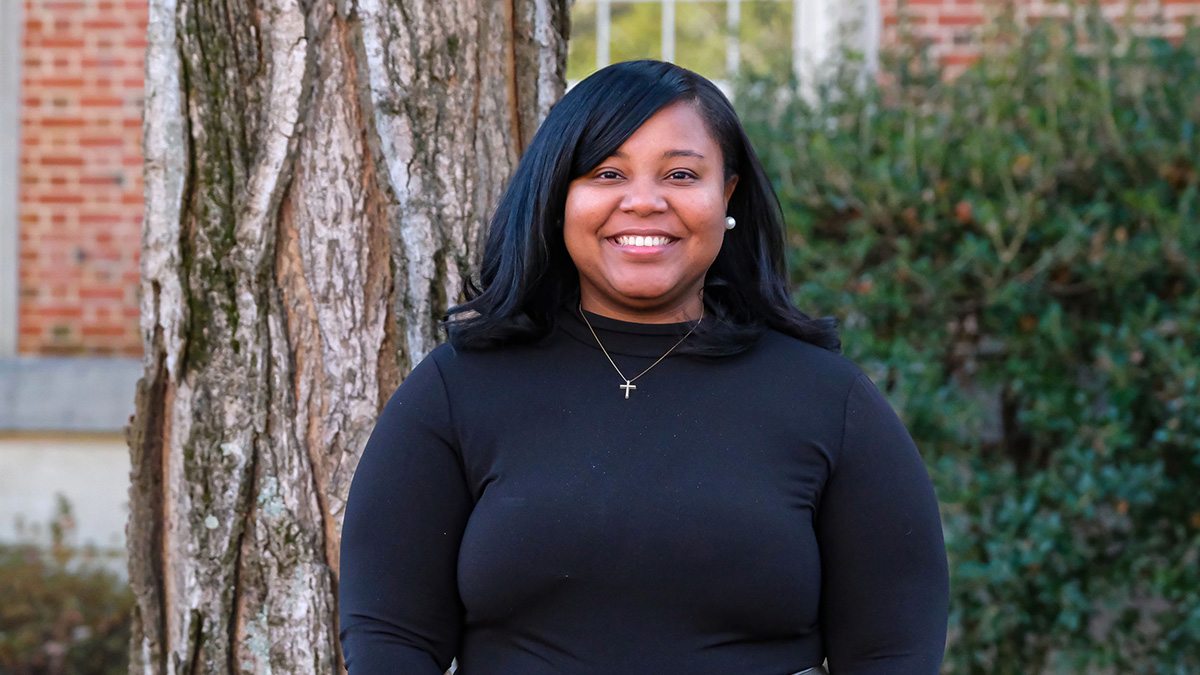LaChelle Allen advocates for student success
As part of the UNC School of Education Helping Heels program, she is training to be a school counselor in a rural area.

LaChelle Allen wants all students to succeed, both in the classroom and beyond.
Allen grew up in Caswell County, North Carolina, just north of Chapel Hill, and that deep connection to rural communities has shaped her educational and professional journey.
“Growing up in a rural community, I believed that pursuing a career as a school counselor would allow me to give back effectively,” Allen said. “The motivation behind what I do was to use my experiences to benefit others in rural communities.”
In May 2023, Allen enrolled in the UNC School of Education’s Master of Education in school counseling program as part of the first cohort of Helping Heels — Expanding Access to Care and Improving Opportunities for Rural Schools in the Tar Heel State.
The U.S. Department of Education awarded the school a $2.27 million grant to pursue the five-year program. Led by principal investigator and education associate professor Dana Griffin, Helping Heels places school counselors-in-training in high-needs elementary and middle schools in Person and Granville counties and motivates graduates to become counselors in rural schools.
Preparing to be a counselor
In Carolina’s intensive, 14-month school counseling program, students participate in a tightly knit cohort experience and a yearlong internship that provides deep preparation for success as a school counselor.
“I’m dedicated to being open and honest with students, making an effort to understand and connect with them on their level,” Allen said. “Parents trust us with their children, and as students reveal their experiences, our role becomes understanding their needs and finding effective ways to support them.”
Counselors learn to address students’ academic struggles, challenges that can obstruct learning, and mental health needs.
“I have gained an appreciation for the role school counselors play and the value they provide students,” said Allen, who worked as a teacher, social worker and in foster care before pursuing a career in school counseling. “Counselors serve as advocates for students, giving a voice to their needs and ensuring access to resources, especially mental health services.”
Committing to student support and equity
Through Helping Heels, Allen can help close equity gaps and expand student access to essential resources, especially for mental health.
“I see myself as a valuable resource,” Allen said. “The importance of mental health is at the forefront, and being in schools enables me to address and break stigmas surrounding mental health.”
While her journey into school counseling was influenced by a desire to give back to rural communities like where she grew up, Helping Heels enabled her to work in those communities and show the impact of improving access to counseling and mental-health resources.
“Helping Heels has been instrumental in shaping my perspective on the role of a school counselor,” Allen said. “It shows the importance of advocating for the well-being and needs of all students, especially the most vulnerable ones.”
As a school counselor, Allen strives to remove stigma around mental health issues and encourage students to seek help.
“I recognize the impact school counselors have, not only guiding individual students, but driving change,” Allen said. “Continuing to advocate across every level is important.”







